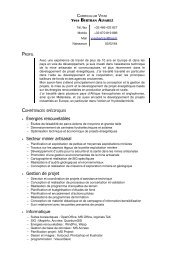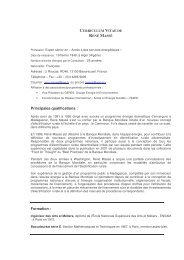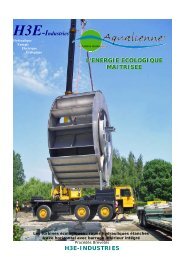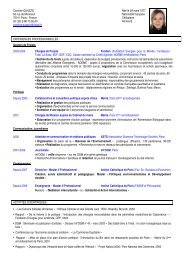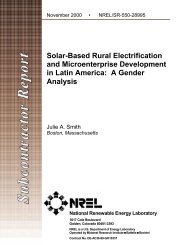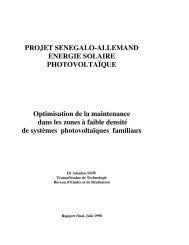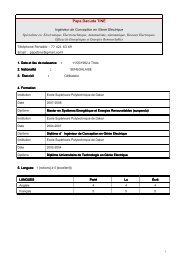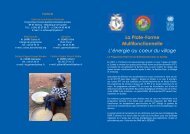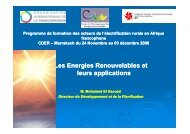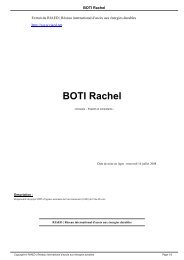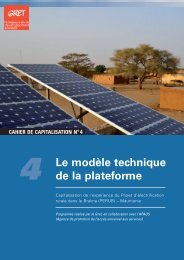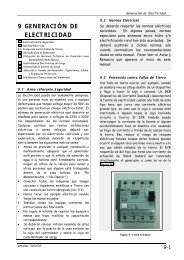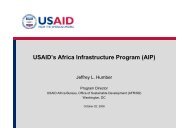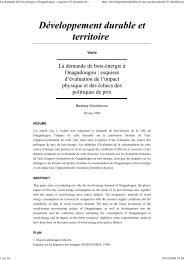Download - RIAED
Download - RIAED
Download - RIAED
You also want an ePaper? Increase the reach of your titles
YUMPU automatically turns print PDFs into web optimized ePapers that Google loves.
Energy services for poverty alleviation in Sub-Saharan Africa: 24 COOPENER projects supported by the IEE programmeRemoval of non-technological barriers to encourage SME energy efficiencyby the rational use of biomass (ENEFIBIO)Programme area:Target countries:Status:Coordinator:Partners:Website:Objective:Benefits:Keywords:COOPENER, strengthening local energy expertise & energy policyand legislation conditions in developing countriesSenegal & CameroonOngoingYves SCHENKELCRA-W, BelgiumE-mail: schenkel@cra.wallonie.beTel: +32 (0)81 627 148ITEBE, FranceERA-Cameroun, CameroonENDA-Tiers Monde, SenegalADG, Belgiumhttp://www.enefibio.comTo develop a favourable framework for bioenergy projectsdevelopment in SMEsFossil fuel replacement, SMEs energy efficiency, activities in ruralareasBioenergy, SME, trainingDuration: 07/2005 – 12/2007Budget: € 905 956 (EU contribution: 50%)Contract number: EIE/04/129/S07.40676Short descriptionThe ENEFIBIO project helps creating a favourable framework for bioenergy projects development in Senegaleseand Cameroonian SMEs. It promotes the use of biomass (residues from agro-food and wood-processing industries,etc.) to produce heat and/or power with efficient technologies. Emphasis is given to energy production within SMEsto provide them with the energy services required for their processes.The non-technological barriers to the development of bioenergy projects are addressed through:• the stimulation of dialogue between policy-makers and SME entrepreneurs regarding policy frameworks• the training of project developers on how to conduct pre-feasibility and feasibility studies and on projectdevelopment methodology• the development of tools to assist project developers (guidelines etc.)• the development of tools to inform SME entrepreneurs on the potential of energy improvement in theircompanies with adapted bioenergy technologies.Expected and/or achieved results• To put on the market persons able to push SME bioenergy projects from idea to financing and implementation• To set up an information centre in Senegal and in Cameroun to stimulate bioenergy projects development inSMEs• To suggest concrete recommendations to improve policy frameworks in order to stimulate investments inbioenergyLessons learntAt this stage, the lessons learnt are:• Awareness of SME entrepreneurs regarding the role of energy in the company efficiency is increasing.• The definition of a SME differs not only between Senegal to Cameroun, but also from the EC definition. Thecriteria are usually based on the annual turnover and the number of employees, which can hardly be knownprecisely.• Few data exist on SMEs energy consumption, except for traditional sectors such as sugar and palm oilindustries. SME managers do not have a clear idea of their energy consumption.19



